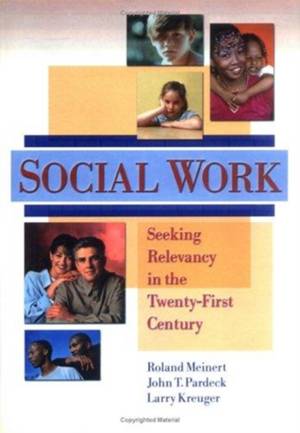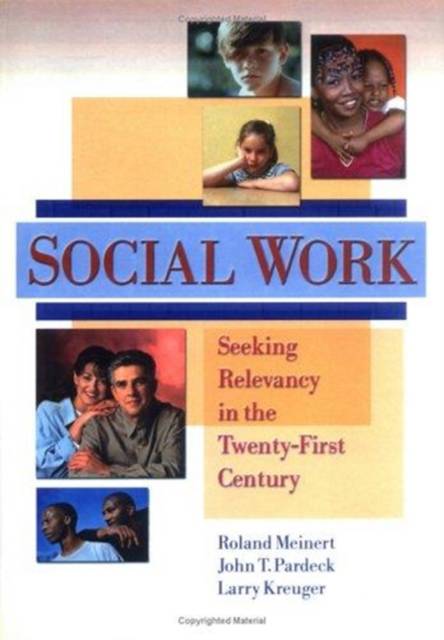
- Retrait gratuit dans votre magasin Club
- 7.000.000 titres dans notre catalogue
- Payer en toute sécurité
- Toujours un magasin près de chez vous
- Retrait gratuit dans votre magasin Club
- 7.000.000 titres dans notre catalogue
- Payer en toute sécurité
- Toujours un magasin près de chez vous
Social Work
Seeking Relevancy in the Twenty-First Century
Jean A Pardeck, Roland Meinert, Larry W KreugerDescription
Discover why social work must be restructured if it is to remain viable!Social Work: Seeking Relevancy in the Twenty-First Century provides you with a critical examination of the major issues that social work education and practice must confront if social work is to remain as a mainline profession. The book explores issues that are not normally covered in social work literature, such as the challenge of reconstructing the social work profession, the use of technology in social work, and the tension surrounding various social work education curriculums. You will benefit from this thorough discussion of the many problems that the social work profession is facing: a lack of scholarly research, inadequate educational programs, and the use of hypertechnology to educate social work students.Social Work: Seeking Relevancy in the Twenty-First Century examines the epistemological, theoretical, socio/technical, and practice directions that social work has branched into. You'll discover that today's central direction for social work is generated from liberal, postmodern, and increasingly feminist ideological perspectives. In a field where conceptual and theoretical input rarely allow for intellectual diversity, this volume demonstrates that several views are best for inquiry and exploration in social work.Issues discussed include:
- examining real or unreal social work values by separating them from beliefs, preferences, norms, attitudes, and opinions
- creating social work course outlines that incorporate practices developed around the globe, allowing for more conceptual and theoretical growth within the field
- realizing the tremendous difference between communication in the instrumental sense via technology, and in the affective, soul-oriented sense via personal interaction
- investigating the negative effects of communicating with hypertechnology (modems, e-mail) in the social work profession
- realizing the need for a greater quantity and quality of social work research to progress further in the field
Social Work: Seeking Relevancy in the Twenty-First Century invites you to reinvent social work for today's post-industrial and post-modern era. You will discover a series of challenges that social work must meet and overcome if it is to move into the new century as a relevant and viable profession. You will explore solutions such as increasing scholarship and research among social workers, and decreasing the use of technology (for example, classes held via the Internet) in social work education programs in order to increase the quality of the social work profession.
Spécifications
Parties prenantes
- Auteur(s) :
- Editeur:
Contenu
- Nombre de pages :
- 170
- Langue:
- Anglais
- Collection :
Caractéristiques
- EAN:
- 9780789006448
- Date de parution :
- 23-02-00
- Format:
- Livre relié
- Format numérique:
- Genaaid
- Dimensions :
- 156 mm x 215 mm
- Poids :
- 562 g







